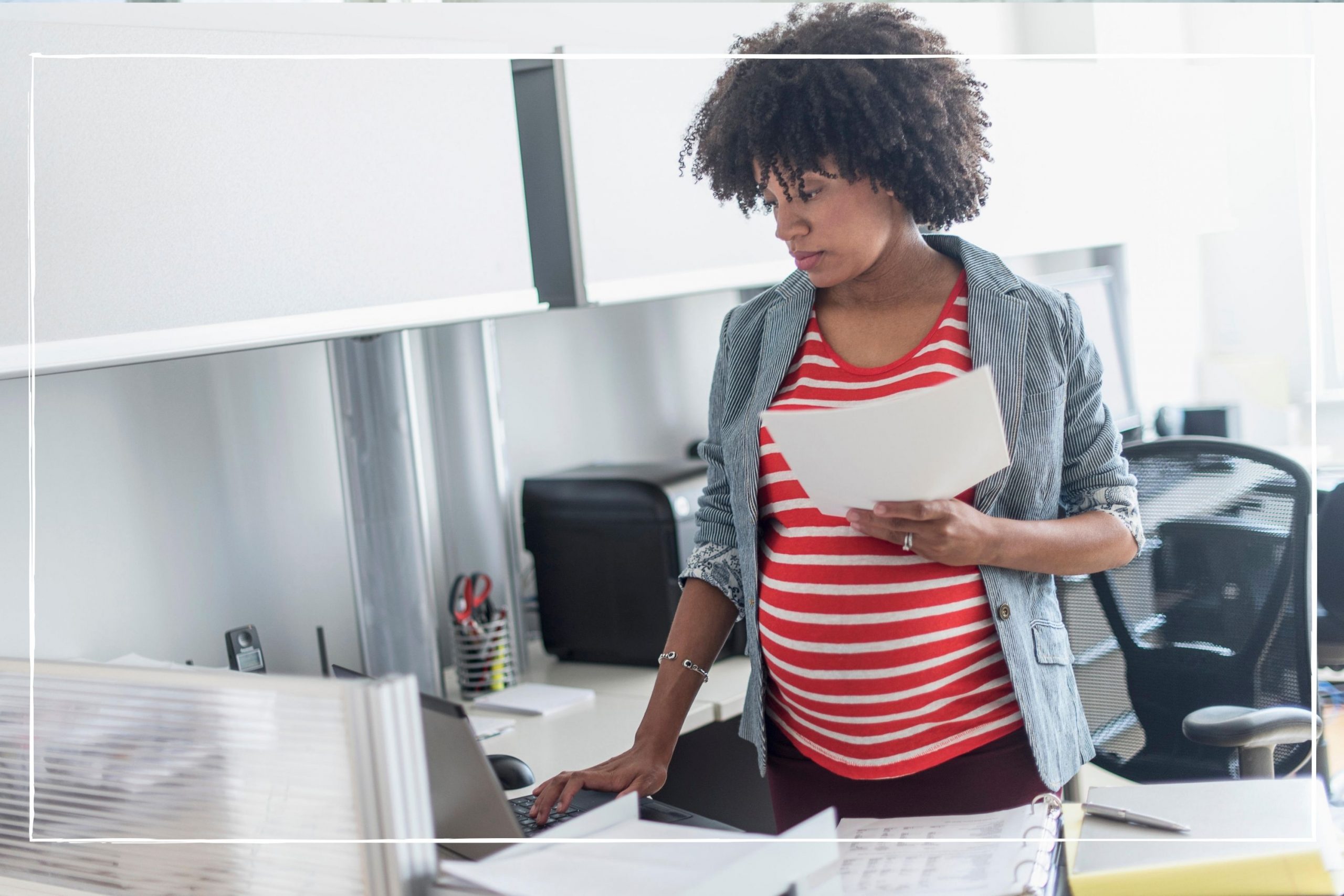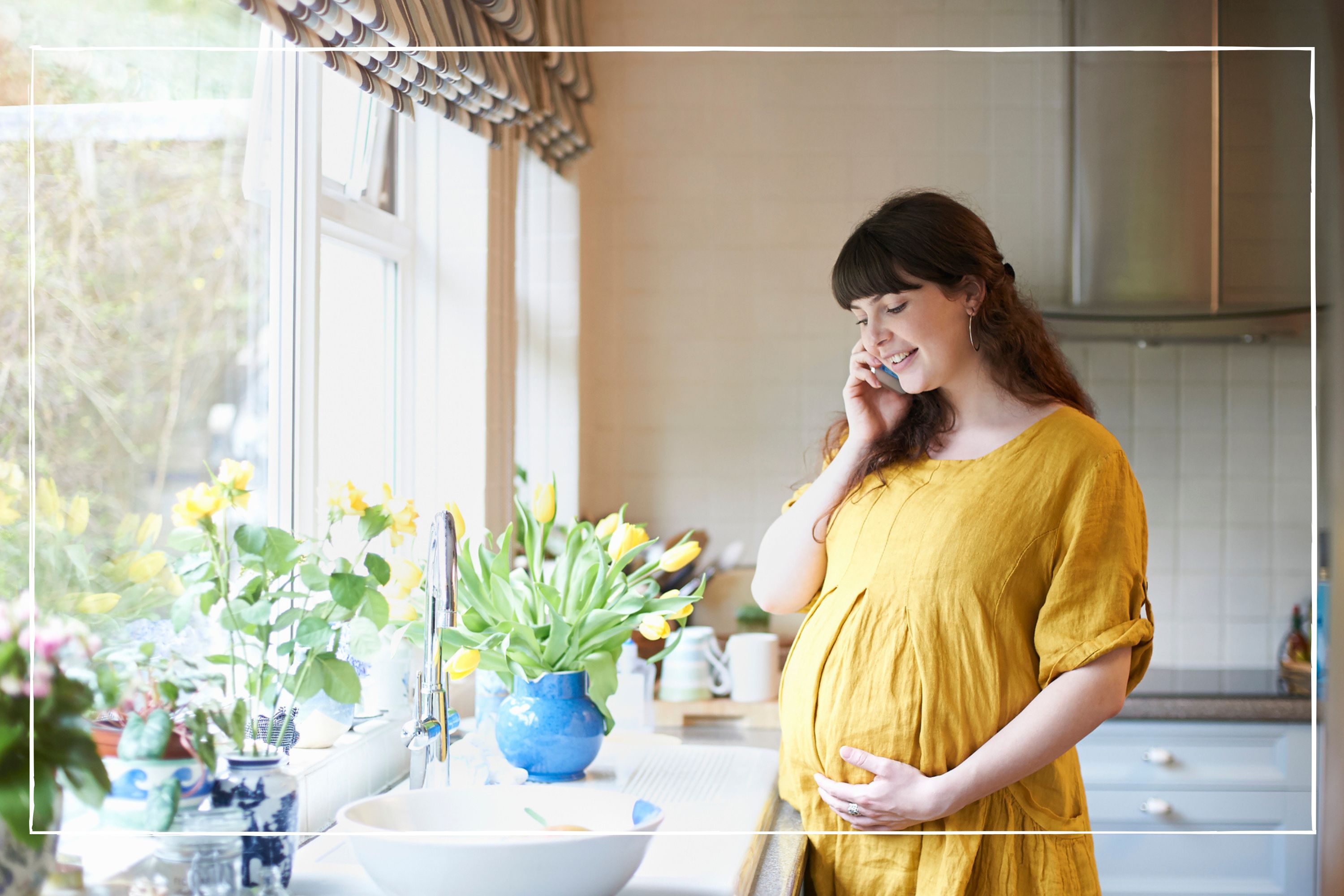
How much maternity pay you get can make a big difference to your lifestyle while you’re on leave. It's also important to understand how maternity pay is calculated so you can keep track of how much you can get.
Sarah Pennells, consumer finance specialist at Royal London, points out that maternity pay policies vary widely between employers – just because someone in your antenatal class is looking forward to six months on full pay, it doesn’t mean you can too. “The minimum that employers have to pay is not generous after the first six weeks," she told us. "But some organisations will pay far more for the first six months or, in some cases, longer. Whether your employer has a generous maternity or parental pay policy, or only pays the minimum, could make a huge difference to your household finances.”
It's also worth finding out whether you are eligible for the Sure Start Maternity Grant, which could give you a one-off payment of £500 to help buy all the baby essentials you need as a new parent. The Healthy Start Scheme should also be considered as it can help those on low incomes afford healthy food and milk, as well as essential vitamin supplements for you throughout your pregnancy or for your infant child.
How much maternity pay do I get?
Statutory maternity pay (SMP) sets a minimum that your employer can pay you when you are on maternity leave. This is 90% of your average weekly earnings for the first six weeks. This is followed by 33 weeks at the lower of £184.03 a week or 90% of your average weekly earnings. This means your statutory maternity pay is paid for a total of 39 weeks. If you take off the full 52 weeks that you are entitled to when you have a baby, you won’t get any SMP during the final 13 weeks.
It is important to note that SMP begins when you start your maternity leave and not when you give birth. The earliest you can normally start your maternity leave is the 11th week before your due date, unless the baby is born earlier.
Some employers will pay a higher level of maternity pay – known as occupational maternity pay or contractual maternity pay.
The NHS for example pays:
Ask your HR department or check the terms of your contract to see if your employer pays more than SMP.

Am I eligible for maternity pay?
Statutory maternity pay (SMP) is the legal minimum that all employers have to pay when you have a baby. You are eligible for SMP if you've worked for your employer for a set amount of time. You also need to have earned above the minimum threshold in that time. Finance expert Sarah Pennells explains: “In order to get it you will need to have worked for your employer continuously for the last 26 weeks – that’s six months – earning at least £123 a week on average.”
Theoretically, that should make it simple to work out. But, as Sarah Pennells points out, the eligibility rules can get confusing. “This is because the six-month employment period runs until what’s called the ‘qualifying week’. This is the 15th week before the expected due date, and is the date by which you have to tell your employer when your baby is due.”
It is also important to be aware that your employer won’t pay your SMP automatically. You need to tell your employer that you will be going on maternity leave to ensure you get your SMP. Sarah Pennells adds: “The cut-off deadline for doing this is 28 days before you plan to stop work, so make sure you tell your employer before then. You will also have to provide proof that you are pregnant in order to get maternity pay.”
To do this you can use your MATB1 certificate. This is usually issued to you by a midwife or doctor around the 20-week mark. If you’ve not been given yours and your pregnancy has gone beyond this point, it’s important to chase it up. You won’t be able to claim maternity pay without it.
If you don't qualify for statutory maternity pay...
If you don’t qualify for SMP, the good news is there is still a safety net in place – called maternity allowance. Maternity allowance pays the lower of 90% of your average weekly earnings or £184.03 a week for 39 weeks. Laura Suter, head of personal finance at AJ Bell, explains: "You just need to have been employed or self-employed for six months in the past 15 months and earning £30 or more for at least 13 weeks. The other way to be eligible is if you do unpaid work for your partner and they are registered as self-employed, although you’ll only get paid maternity allowance for 14 weeks in this instance.”
If you’re self-employed, the amount of maternity allowance you’ll get depends on your National Insurance contributions, but will be between £27 to £184.03 a week. To get the full amount you’ll need to have been registered with HM Revenue & Customs for 26 weeks in the 66 weeks before your due date and paid Class 2 National Insurance Contributions for 13 weeks over the same period.
Do I have to pay tax on my maternity pay?
Even though you’re likely to be living on less when you’re on maternity leave, your maternity pay is still taxable. This means if your overall income for the year exceeds the personal allowance ‒ which stands at £12,570 in the 2024/25 tax year ‒ you will pay income tax on it.
Personal finance expert Laura Suter explains: “You’ll still be charged tax as normal on any maternity pay you get. However, because you’ll likely be earning less you’ll find that you get to keep more of your salary after tax and National Insurance. You might also find that you end up with a tax rebate at the end of the tax year, which is a helpful boost when your earnings have taken a hit.”
Tax years run from April to April. The earlier in the tax year that you go off on maternity leave, the more likely it is you’ll get an income tax rebate. In the tax year that you come back to work, your tax code should then be adjusted for your lower income. This means you wouldn’t get a tax rebate.
Will I get full pay while on maternity leave?
It’s unlikely that you will get full pay while on maternity leave. Although you can get close to it in the early weeks. SMP ensures you get a minimum of 90% of your average weekly earnings for the first six weeks. This is only the case if you meet the eligibility criteria. Some employers offer enhanced occupational maternity pay, which may be as much as full pay. However, you would be incredibly lucky to get full pay for the duration of your maternity leave. You might start off on full pay, but it’s likely to drop to half-pay during your maternity leave.
What happens if I get pregnant again?
If you fall pregnant again while you’re on maternity leave, you will be entitled to another 52 weeks maternity leave for the next baby. Depending on your timings, you may not even have to return to work between each baby. However, what happens to your maternity pay will depend on the package you have with your employer. As Gary Wedderburn, adviser at Acas, the Advisory, Conciliation and Arbitration Service, explains: “For Contractual Maternity Pay, it will depend entirely on the terms the employer sets.”
If you are currently on SMP, you theoretically should get it for your next pregnancy, even if you are still on maternity leave. However, you will need to prove that you still meet the eligibility criteria.
Gary Wedderburn adds: “Proving you are pregnant and providing the correct notice is not normally a problem. Meeting the criteria for at least 26 weeks’ work continuing into the qualifying week is not normally a problem either, as you continue to be employed during maternity leave. Earning on average £123 per week may be an issue, however. If you are in the paid period of maternity leave, that will count towards average pay. If you are in the unpaid portion of maternity leave, you may not have the required average earnings to qualify for a second time.”
So long as you are eligible, your SMP will be on the same terms as your first child. There is not a lower rate of SMP for additional children.
What happens if I decide not to go back to work?
While on maternity leave, you may decide that you don’t want to return to work after a year away, or that it's not financially worth it. The good news is you don’t need to repay your statutory maternity pay. However, if you received enhanced occupational maternity pay, your employer may insist you repay anything over and above SMP.
Alternatively, you may need to go back to work for a period. Check your contract or employee handbook to find out how long you will need to spend back at work in order to keep your enhanced maternity pay.
If you don't go back to work, then make sure you are aware of how the motherhood penalty could impact you in later life.
Can I get maternity pay if I am unemployed?
If you aren’t employed when you have a baby you may still be entitled to maternity allowance. But this is only the case if you have only recently stopped working. To qualify you will need to have been employed (or self-employed) for 26 weeks within the 66 weeks before your baby is due. You’ll also need 13 weeks where you earned an average of £30 a week during that time.
If you don’t qualify for SMP or maternity allowance, you may be entitled to other benefits, such as Universal Credit.
You might also be interested in the benefits you can claim while on maternity leave, as well as how much child benefit you could get to help with the costs of raising your child.







